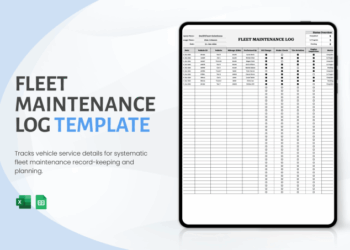When it comes to home renovation financing, the choices can be overwhelming. Let's delve into the world of the best options available, ensuring a comprehensive understanding of how to finance your dream home improvements.
This guide will walk you through the various financing options, highlighting their pros and cons, eligibility requirements, interest rates, repayment terms, and tips for making the best choice for your renovation project.
Types of Home Renovation Financing
When it comes to financing your home renovation project, there are several options available to choose from. Each type of financing has its own unique features and benefits, so it's important to understand the differences between them before making a decision.Personal Loans
Personal loans are a popular choice for financing home renovations because they are unsecured, meaning you don't have to put up any collateral. These loans are typically based on your credit score and income, and can be used for a wide range of renovation projects, from small upgrades to major renovations like kitchen remodels or room additions.Home Equity Loans
A home equity loan allows you to borrow against the equity you've built up in your home. This type of financing typically offers a fixed interest rate and a set repayment term, making it a predictable option for funding larger renovation projects. Home equity loans are best suited for projects with a specific cost in mind, such as a bathroom remodel or new roof installation.HELOCs (Home Equity Line of Credit)
HELOCs are similar to home equity loans, but they function more like a credit card with a revolving line of credit. With a HELOC, you can borrow against your home's equity as needed, making it a flexible option for ongoing or phased renovation projects. This type of financing is ideal for projects that may have fluctuating costs or require multiple stages of construction, such as a whole home remodel.Construction Loans
Construction loans are specifically designed to fund the building or renovation of a home. These loans typically have variable interest rates and require a detailed construction plan to be approved. Construction loans are best suited for major renovation projects that involve structural changes, such as building an addition or completely renovating an older home.Pros and Cons of Each Financing Option
When considering financing options for home renovations, it is important to weigh the advantages and disadvantages of each option to make an informed decision.Personal Loans for Home Renovation
- Pros:Personal loans offer flexibility in terms of loan amount and repayment period. They can be secured or unsecured, making them accessible to a wide range of borrowers. Additionally, the approval process is typically faster compared to other loan options.
- Cons:Personal loans may come with higher interest rates compared to other financing options. Borrowers with lower credit scores might also face challenges in securing favorable loan terms.
Home Equity Loan for Financing Renovations
- Pros:Home equity loans generally offer lower interest rates compared to personal loans. Borrowers can access a large sum of money based on the equity in their home. The interest paid on a home equity loan may be tax-deductible.
- Cons:Home equity loans require using your home as collateral, putting your property at risk if you are unable to repay the loan. The approval process may also be more stringent, and closing costs can add to the overall expense.
HELOCs vs. Construction Loans for Home Improvement
- Pros of HELOCs:HELOCs offer a flexible line of credit based on the equity in your home, allowing you to borrow as needed. Interest is only paid on the amount used, providing cost savings.
- Cons of HELOCs:Interest rates on HELOCs can vary and may be higher than other loan options. Fluctuating interest rates can also lead to uncertainty in monthly payments.
- Pros of Construction Loans:Construction loans are specifically designed for home improvement projects, providing funds in stages as the work progresses. Interest rates may be lower during the construction phase.
- Cons of Construction Loans:Construction loans can be complex and involve more paperwork. They may also have higher interest rates compared to traditional mortgage loans.
Eligibility and Requirements
When it comes to obtaining home renovation financing options, there are specific eligibility criteria and requirements that individuals need to meet. Additionally, there are certain documents and information that are typically required during the application process. Understanding how credit scores and home equity play a role in determining eligibility is crucial for those seeking financing for their home improvement projects.Eligibility Criteria for Different Financing Options
- Personal Loans: To qualify for a personal loan, lenders typically look at the borrower's credit score, income, and debt-to-income ratio. A good credit score and stable income are usually required.
- Home Equity Loans: Eligibility for a home equity loan is based on the amount of equity in the home. Lenders may also consider credit score, income, and debt-to-income ratio.
- Home Equity Line of Credit (HELOC): Similar to a home equity loan, eligibility for a HELOC is determined by the amount of equity in the home, credit score, income, and debt-to-income ratio.
- Cash-Out Refinance: To qualify for a cash-out refinance, borrowers need to have equity in their home and a good credit score. Lenders also look at income and debt-to-income ratio.
Documentation and Information Required
- Personal Loans: When applying for a personal loan, borrowers may need to provide proof of income, identification, bank statements, and other financial documents.
- Home Equity Loans: Documentation for a home equity loan may include proof of income, mortgage statements, property documents, and credit reports.
- HELOC: Borrowers applying for a HELOC may need to provide income verification, property documents, credit reports, and information on existing debts.
- Cash-Out Refinance: Documentation for a cash-out refinance may include income verification, property appraisal, mortgage statements, and credit reports.
Role of Credit Scores and Home Equity
- Credit Scores: A higher credit score increases the chances of approval for home renovation financing. Lenders use credit scores to assess the borrower's creditworthiness.
- Home Equity: The amount of equity in the home plays a significant role in determining eligibility for home renovation financing options. Lenders use the home's equity as collateral for the loan.
Interest Rates and Repayment Terms
When it comes to home renovation financing, understanding the interest rates and repayment terms is crucial in determining the overall cost of your project and managing your budget effectively.Personal Loans
Personal loans typically have fixed interest rates, meaning that the rate remains the same throughout the life of the loan. Repayment terms for personal loans can range from a few years to several years, depending on the lender. It's important to note that personal loans may have higher interest rates compared to other financing options, but they offer the convenience of a lump sum payment for your renovation project.Home Equity Loans
Home equity loans usually have lower interest rates compared to personal loans because they are secured by the equity in your home. The interest rates for home equity loans can be fixed or variable, and the repayment terms can range from 5 to 30 years. Keep in mind that if you default on a home equity loan, you risk losing your home as collateral.HELOCs
HELOCs typically have variable interest rates, which means that your payments can fluctuate based on market conditions. The repayment terms for HELOCs usually consist of a draw period, during which you can access funds, followed by a repayment period. It's important to carefully consider the potential for rising interest rates when opting for a HELOC.Construction Loans
Construction loans often have higher interest rates compared to other financing options due to the higher risk involved in funding a renovation project. The repayment terms for construction loans can vary, but they typically involve interest-only payments during the construction phase, followed by full repayment or conversion to a permanent mortgage once the project is completed.Tips for Choosing the Best Financing Option
When it comes to selecting the most suitable financing option for your home renovation project, there are several factors to consider. By taking the time to compare different financing options and aligning them with the scope and budget of your renovation, you can find the most cost-effective solution that meets your needs.Consider Your Budget and Renovation Scope
- Assess the total cost of your renovation project and determine how much financing you will need.
- Consider the scope of your renovation - whether it's a small remodeling project or a major overhaul.
- Ensure that the financing option you choose aligns with your budget and the scale of your renovation.
Compare Interest Rates and Repayment Terms
- Look at the interest rates offered by different financing options and compare them to find the most competitive rate.
- Consider the repayment terms, including the length of the loan and whether it offers flexibility in repayment options.
- Choose a financing option that offers favorable interest rates and repayment terms that suit your financial situation.
Review Eligibility Requirements and Application Process
- Check the eligibility requirements for each financing option to ensure you meet the criteria for approval.
- Understand the application process for each financing option and choose one that is easy to apply for and offers quick approval.
- Be prepared with all necessary documents and information to streamline the application process and increase your chances of approval.














